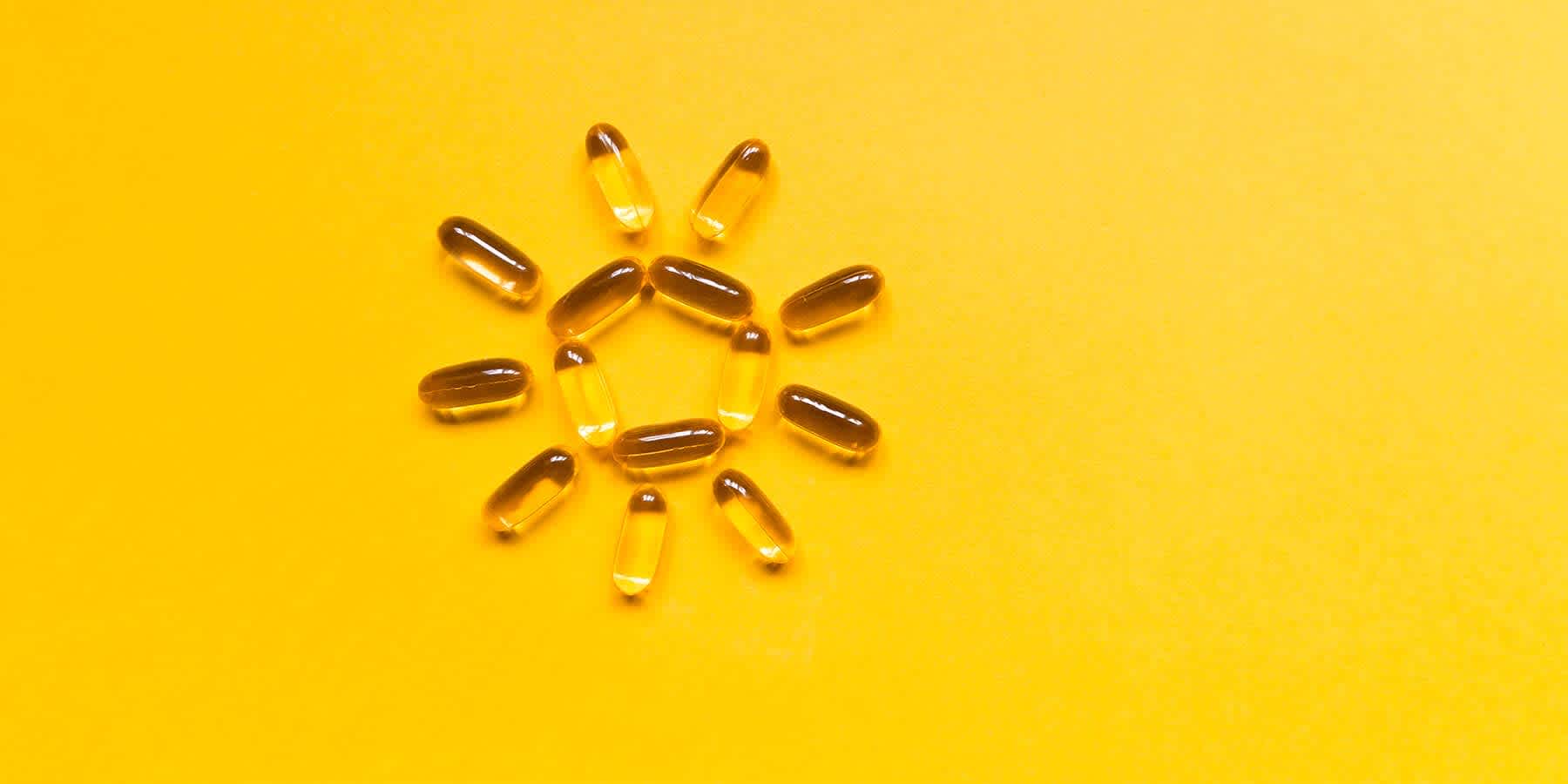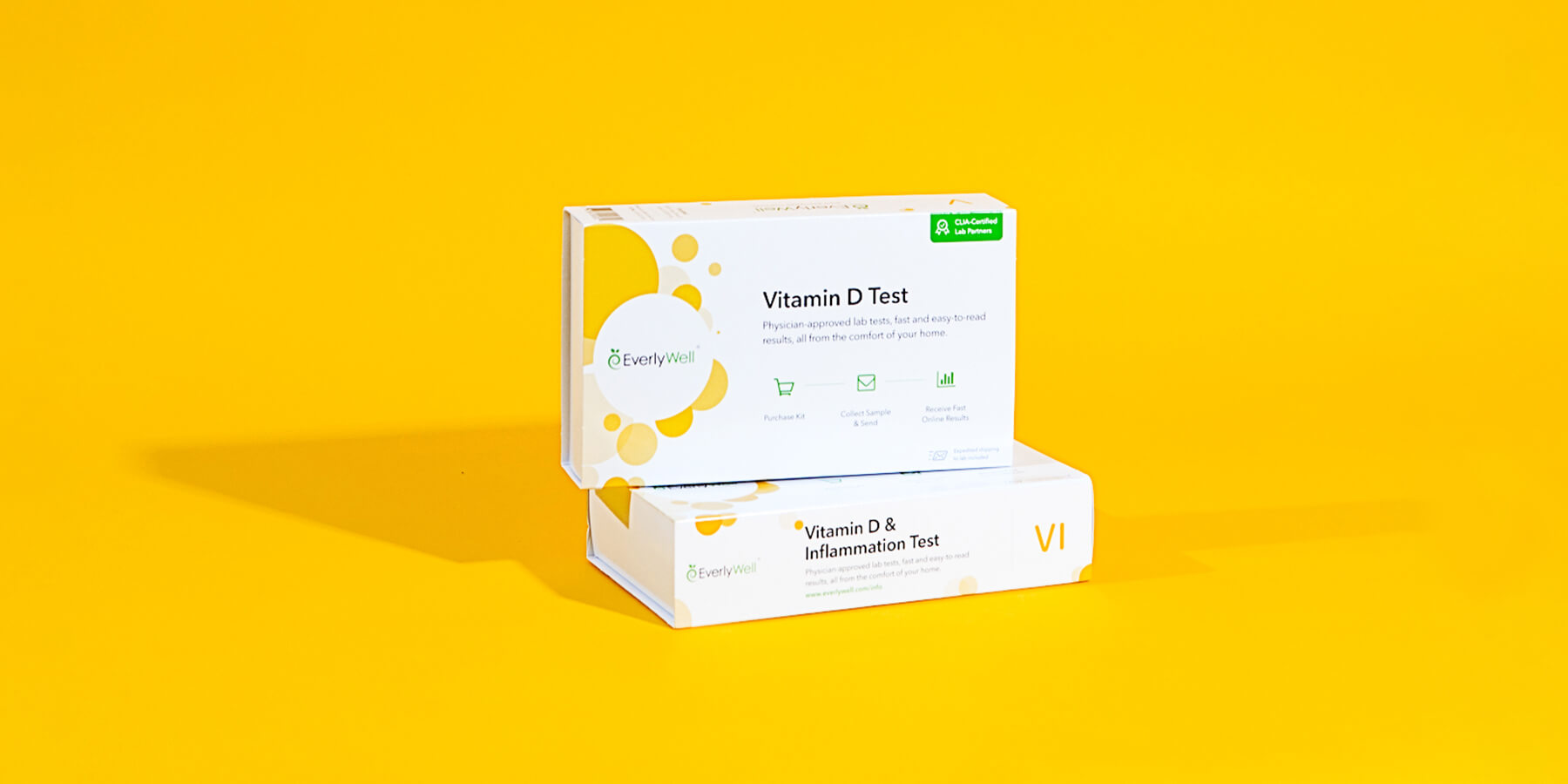
Vitamin D and COVID-19: here’s what we know
Written by Everlywell RDN, MS, LD, Sheena Batura. To give you technically accurate, evidence-based information, content published on the Everlywell blog is reviewed by credentialed professionals with expertise in medical and bioscience fields.
If you’ve been reading the news lately, you may be curious about the connection between COVID-19 and vitamin D. But before you invest in purchasing vitamin D supplements, you should understand how vitamin D impacts your health, what proper supplementation looks like, and the right levels for your body. Here we’ll provide clarity on the latest research available and advice from our Registered Dietitian, Sheena Batura on vitamin D supplementation.
How much vitamin D do I need?
When it comes to your vitamin intake, the amount you need depends on your age. For adults, according to the National Institutes of Health, the Recommended Dietary Allowance (RDA) of vitamin D for people between the ages of 14-70 is 600 International Units (IU) per day, while for people over age 70 it’s 800 IU per day—but a number of factors may affect your recommended intake. The RDA represents what is deemed sufficient to maintain bone health in healthy people.
If you’re wondering about supplementation, it’s ideal to try to synthesize vitamin D through sunlight exposure (roughly 10-30 minutes of midday sun) and food sources first. However, if one is unable to achieve optimal vitamin D levels through these routes, supplementation may be warranted.
It’s also important to note that, per the Institute of Medicine, the tolerable upper intake level (UL) for vitamin D is 4,000 IU a day—meaning going above that amount (in supplemented form, not via sunlight exposure) may lead to a greater chance of side effects such as hypercalcemia (high calcium levels), which may lead to kidney problems. This is why it’s important to discuss what dose of vitamin D is best for you with your healthcare provider.
What can I eat to get vitamin D from food sources?
If you’re in self-isolation with minimal ways to get direct vitamin D from the sun, getting enough vitamin D through food sources is especially important. This includes fish like salmon and trout, mushrooms (specifically those that have been exposed to UV light), eggs, and other items that can be fortified with vitamin D—like dairy and non-dairy milks and certain cereals. For a full list of food sources for vitamin D, the National Institutes of Health (Office of Dietary Supplements) has a helpful resource.
Should I be worried about my levels of vitamin D and COVID-19?
To date, BMJ Nutrition, Prevention & Health investigated the current scientific evidence based on the vitamin and its role in immune function. According to Professor Sue Lanham-New, Head of the Department of Nutritional Sciences at the University of Surrey and lead author of the study: “An adequate level of vitamin D in the body is crucial to our overall health; too little can lead to rickets or the development of osteoporosis, but too much can lead to an increase in calcium levels in the blood which could be particularly harmful.”
As of the beginning of June, it was concluded that “scientists found no evidence of a link between high dose supplementation of vitamin D in helping to prevent or successfully treat COVID-19 and cautioned against over-supplementation of the vitamin, without medical supervision, due to health risks.” In addition to this, scientists believe that there is currently no firm link between vitamin D intake and resistance to respiratory tract infections, and find it can be difficult to control for other variables like obesity which also may enhance the risk for disease. Studies investigating vitamin D and COVID-19 are currently underway. It’s important to maintain a balanced intake of vitamin D for your overall health.
Take action
I advise anyone who is concerned to talk to your healthcare provider. For those who cannot book an appointment, do not have insurance coverage, or have high-deductible plans, you can take a safe and easy at-home Vitamin D Test to see if your level is adequate.

The cost of this five-minute finger prick is an upfront $49—a fraction of the cost of similar tests you would take at the doctor’s office. It’s not always glamorous, but it’s convenient—and it works.
References
1. Vitamin D. National Institutes of Health. URL. Accessed June 24, 2020.
2. Lanham-New SA, Webb AR, Cashman KD, et al. Vitamin D and SARS-CoV-2 virus/COVID-19 disease. BMJ Nutrition, Prevention & Health 2020;bmjnph-2020-000089. doi: 10.1136/bmjnph-2020-000089
3. Scientists Warn Against High Doses of Vitamin D Supplementation for Preventing or Treating COVID-19. SciTechDaily. URL. Accessed June 24, 2020.